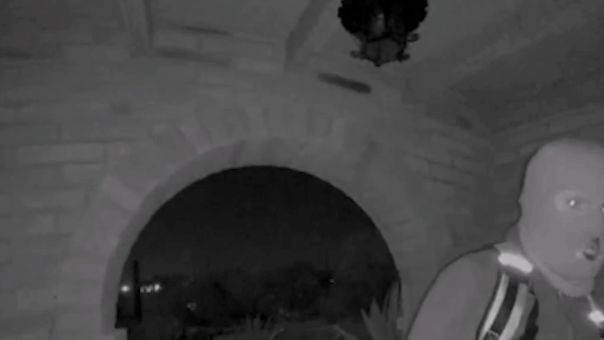HILLSBOROUGH, N.C. – Two legal cases involving former presidential candidate John Edwards are beginning to seem like different versions of the same play, with overlapping plots, characters and action — but running simultaneously on separate stages.
The increasingly convoluted drama led a veteran judge on Friday to delay a civil trial involving a sex tape purportedly featuring the former U.S. senator until March 2012.
The trial had previously been scheduled to begin Oct. 10, the same month that Edwards is due to go on trial on charges of breaking campaign finance laws. Prosecutors accuse him of using political contributions to cover up the affair that's also at the heart of the lawsuit, though Edwards denies the criminal charges.
"This does make this case unusual," Orange County Superior Court Judge Carl Fox said before he postponed the civil trial. "Normally, you don't have a civil case like this and a contemporaneous criminal investigation involving potential witnesses who are also involved in the civil case."
The legal matters are separate, and Edwards is only a supporting character in the lawsuit that his former mistress filed against a former campaign aide. But both cases hinge on the same events and require the participation of the same people — making it a dicey, unpredictable matter for attorneys and the courts.
"It's gut-check time for the prosecutors" in the criminal case, said Daniel Stein, former chief of the public corruption unit at the U.S. Attorney's Office for the Southern District of New York and now a partner in a Manhattan law firm.
"As a prosecutor, you always want to make sure you have control over what the evidence is going to be," he said. "And it seems like every witness has already given an interview on TV, or written a book, or been deposed in a separate civil case."
The lawsuit was filed by Rielle Hunter, Edwards' former mistress, seeking the return of property from Andrew and Cheri Young, including the purported sex tape. Andrew Young had for a time pretended that he fathered the child that Hunter had with Edwards to protect the candidate during his failed 2008 presidential bid. Hunter lived for a while with the Youngs.
Edwards spent six hours in February answering more than 2,000 questions posed by the Youngs' lawyers in the civil case.
In the criminal case, both the Youngs are expected to be witnesses against Edwards, their lawyer Robert Elliot said, though neither one has been given immunity from prosecution.
The criminal prosecutors argue that Edwards illegally accepted campaign contributions far in excess of the legal limit and used part of the money to hide Hunter during the campaign. They say he also submitted bogus campaign finance reports to conceal the activity. Edwards has pleaded not guilty to all six charges against him.
With important players appearing in both cases, the scripts have already become confusing as one proceeding bleeds into the other, occasionally with some of the parties unaware that it's happening.
This month, Hunter's lawyers filed a motion accusing the Young camp of providing Edwards' deposition and other material from the civil case to prosecutors in violation of protective orders issued by Fox. The Youngs' lawyers responded initially by saying they hadn't violated any protective order "willfully," without elaborating.
Their answer became less cryptic Thursday night when a four-month-old order from U.S. District Court Judge Louise Flanagan was unsealed. Flanagan had ordered the Youngs to comply with a subpoena from a federal grand jury in the criminal case seeking the material from the civil proceeding, an order that Hunter's lawyers say they didn't know about until after it became public.
"I frankly find this whole process difficult to understand," said Alan Duncan, one of Hunter's lawyers. "I've never seen anything like it."
Hunter's lawyers had sought to have the Youngs or their lawyers held in contempt of court over the disclosure of the deposition.
Elliot, the Youngs' lawyer, said the contempt motion was likely a strategy hatched with the Edwards camp to discredit Andrew Young as a potential witness, which Duncan adamantly denied.
"This case has become a sideshow to the criminal case," Elliot said. "There's nothing in this civil action that can be done that won't have some effect on the criminal action."
Or vice-versa. Although the criminal trial is slated to begin in October, Edwards' lawyers are expected to file a motion to have the trial pushed back. If that happens, it could delay the lawsuit — which began over 18 months ago — even further. In fact, Fox and the various lawyers were bandying around the possibility of the civil trial taking place in September of 2012.
In the drama of Edwards' legal troubles, the final act remains elusive.







































